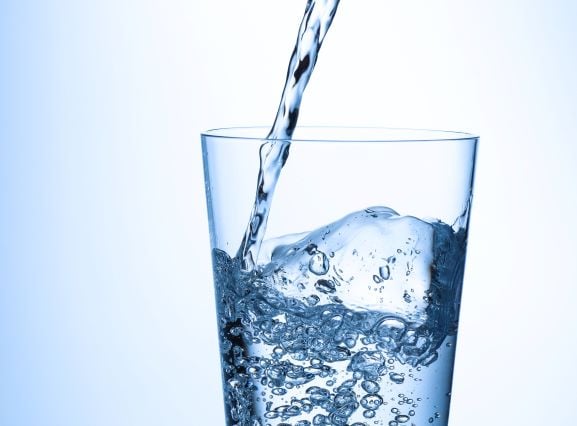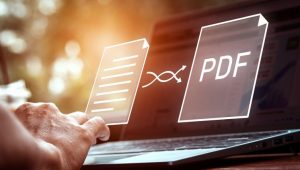Why It’s Important to Stay Hydrated While You Work
 Publié le 14 July 2020
Publié le 14 July 2020
Do you ever find yourself feeling lethargic, low on energy and unable to concentrate on your work? The solution may be as simple as a glass of water, because the root of these problems could be dehydration. It may be hard to believe, but as many as 80% of people could actually be mildly to moderately dehydrated throughout the day. Whether you are working from home or at the office, it is very important to stay hydrated while you work.
We tend to imagine dehydration like we’ve seen it in movies, with a solitary person on the verge of collapse under the hot sun desperately searching for a single drop of water before their bodies start to shut down. Severe dehydration is very real and very dangerous, but many people can experience a milder stage in their daily lives without even realizing, one that still includes many unpleasant symptoms.
Even mild dehydration can cause:
- Headaches
- Muscle cramps
- Dizziness and vertigo
- Low energy
- Difficulty concentrating
These symptoms will negatively affect your physical and mental well-being, making it harder to feel good and perform at your best. That is why it is important to take steps to ensure that you stay hydrated while you work throughout the day. Dehydration can strike anywhere, even the office or your home workspace.
How Much Water Should You Drink?
It is commonly said that everyone should drink 8 8-ounce glasses of water in a day, which is equivalent to 2 liters or half a gallon. The truth is not that simple. The amount of water that a person needs to be properly hydrated depends on a variety of factors including their physical size, age, the environment and their activity level. A person who is 6’2”, and 190 pounds working in front of the air conditioner and someone who is 5’4″, 130 pounds and works in a warm space will of course require different amounts of water. Insisting that the same rule of thumb applies to both of them does not make common sense.
Discovering the exact amount of water each person needs in a day can be a complicated process, but The National Academies of Sciences, Engineering, and Medicine states a more precise but still wildly simple recommendation of 15.5 cups (3.7 liters) for men and 11.5 cups (2.7 liters) of fluids a day for women, which obviously does not take many important factors and nuances into account. The point is that most people likely are not drinking enough water to stay hydrated.
Ways You Can Stay Hydrated At Work
Keep A Water Bottle At Your Desk
Having water within arms reach of you at all times is a simple and effective way of remembering to stay hydrated. Get yourself a nice insulated bottle that will make for easy transport and keep your water nice and cool. Just remember to clean it periodically, either by hand with soap or run it through the dishwasher to prevent any bacteria from building up.
Set An Alarm
Every one of us gets multiple notifications on a daily basis — sometimes dozens — so it only makes sense that one of them reminds us to take a drink. If you want to drink a specific amount of water each day, try dividing it by the hour and setting a reminder alarm for every 60 minutes.
Use An App
As the decade-old commercial promised us, “there’s an app for that.” You can find a range of different apps for your phone designed to track and monitor your water intake. Sometimes this is a component of fitness and nutrition apps, while there are also apps so dedicated to tracking how much water you drink. The gamification of elements of our daily lives such as work and health and fitness is a popular trend, so take advantage of these programs to improve your health.
Control the Temperature
The external temperature plays a huge role in how much water you need to drink to stay hydrated while you work. When the temperature is hotter, your body produces more sweat as a means of cooling down. The more you sweat, the quicker you will become dehydrated. If you don’t get enough water in warm temperatures, it can actually increase the core temperature of your body. This is not just uncomfortable, and increases the risk of dehydration and its effects.
On hot days always take steps to lower the temperature of the workspace not just for your comfort, but your health. Increase the air conditioning, turn on a fan, open a window, and increase your fluid intake. If you can control the temperature in your workspace, it will go a long way to helping you stay hydrated while you work.
Eat Your Water
There are many healthy foods that contain high amounts of water. These include cucumber, tomatoes, spinach, broccoli, berries, watermelon and other fruits. Including these foods in your healthy eating plan is a great way to stay hydrated while enjoying a tasty and nutritious snack.
Avoid Salty Snacks
Conversely, there are plenty of popular snack options that are high in salt. Almonds, trail mix, chips, cured meats, jerky and other prepared foods often use salt as a preservative. While it will prevent food from spoiling, ingesting too much salt throws off the sodium-to-water ratio in your body. The extra salt can draw water out of your body’s internal tissues, dehydrating you even more quickly.
Don’t Drink Too Much
Believe it or not, it’s actually possible to drink too much water. Water intoxication occurs when there is too much fluid ingested in a short amount of time for the body to process and digest properly. This is a life threatening condition that even when treated can still cause severe damage to the kidneys and other internal organs. If you realize that you have fallen behind on your hydration goals for the day DO NOT try to catch up all at once. Like all things, moderation is key. You want to drink the correct amount of water, not too much and not too little.
Coffee, Soda and Energy Drinks Count As Water, Right?
Wrong. All drinks are not made the same. Gatorade is not better than water. Many drinks contain chemicals and additives that can actually dehydrate you further, even if they taste good and feel refreshing. The added salt and sugar in soft drinks, juices and sports drinks affects your sodium levels just like salty snacks. The caffeine in coffee, tea, soft drinks and energy drinks has also been linked to excess water loss.
When you feel thirsty, it’s best to leave the fancy and artificially flavoured drinks unopened and just drink a glass of water.







